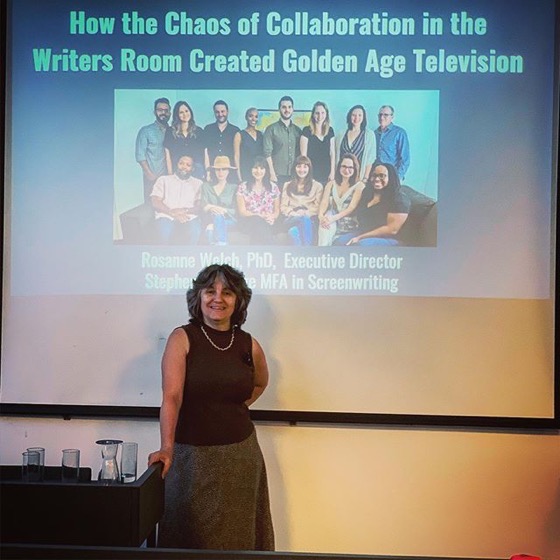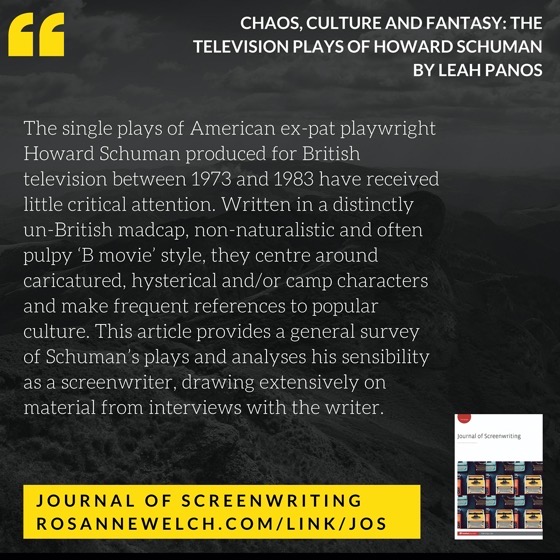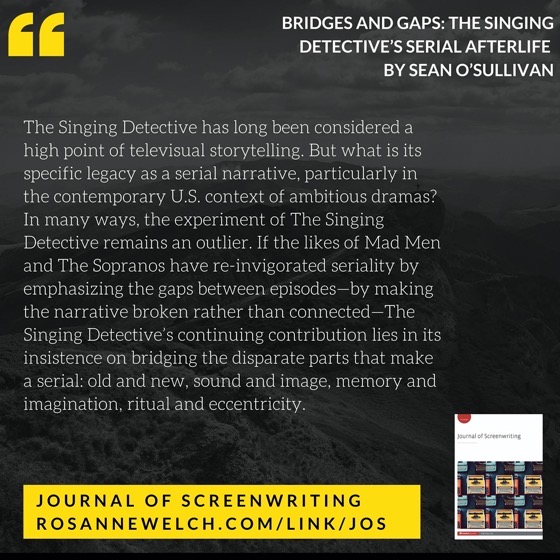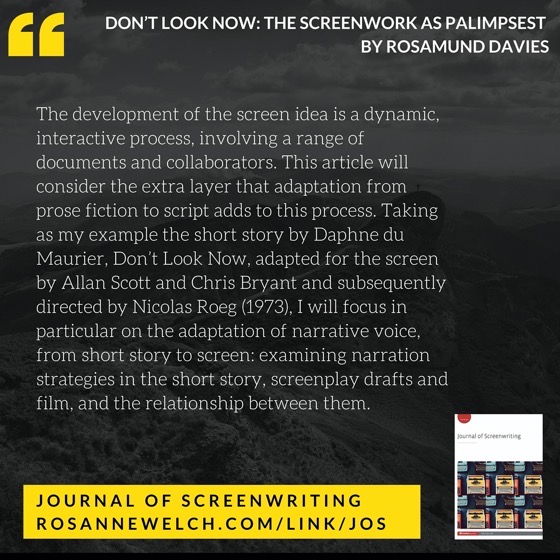Highlighting the articles in the past editions of the Journal of Screenwriting, of which I am the Book Reviews Editor. Hopefully these abstracts will entice you to did a little deeper into the history and future of screenwriting. — Rosanne
Where do cinematic ideas come from? by Adrian Martin
This essay explores the concept of a cinematic idea. How does it originate, and how can it shape, on every level, the construction of a film? Making special reference to filmmakers’ documents (as an instance of genetic criticism), the essay offers a case study of Leos Carax’s Holy Motors.
The Journal of Screenwriting is an international double-blind peer-reviewed journal that is published three times a year. The journal highlights current academic and professional thinking about the screenplay and intends to promote, stimulate and bring together current research and contemporary debates around the screenplay whilst encouraging groundbreaking research in an international arena. The journal is discursive, critical, rigorous and engages with issues in a dynamic and developing field, linking academic theory to screenwriting practice.
Get your copy and subscription to the Journal of Screenwriting Today!
* A portion of each sale from Amazon.com directly supports our blogs
** Many of these books may be available from your local library. Check it out!


![11 Donald Bellisario from How The Chaos Of Collaboration in the Writers Room Created Golden Age Television [Video]](https://rosannewelch.com/wp-content/uploads/2021/05/srn-porto-11.jpg)




![10 Steven Bochco from How The Chaos Of Collaboration in the Writers Room Created Golden Age Television [Video]](https://rosannewelch.com/wp-content/uploads/2021/04/srn-porto-10.png)


![Dr. Rosanne Welch and Intellect Editor James Campbell Talk Stephens College MFA in TV and Screenwriting, The Journal of Screenwriting, and Other Work [Video] (1 hour)](https://rosannewelch.com/wp-content/uploads/2021/01/RMW-Rosanne-Signature-for-Web.png)
![Dr. Rosanne Welch and Intellect Editor James Campbell Talk Stephens College MFA in TV and Screenwriting, The Journal of Screenwriting, and Other Work [Video] (1 hour)](https://rosannewelch.com/wp-content/uploads/2021/03/rmw-intellect-ig-live-20210324.png)

